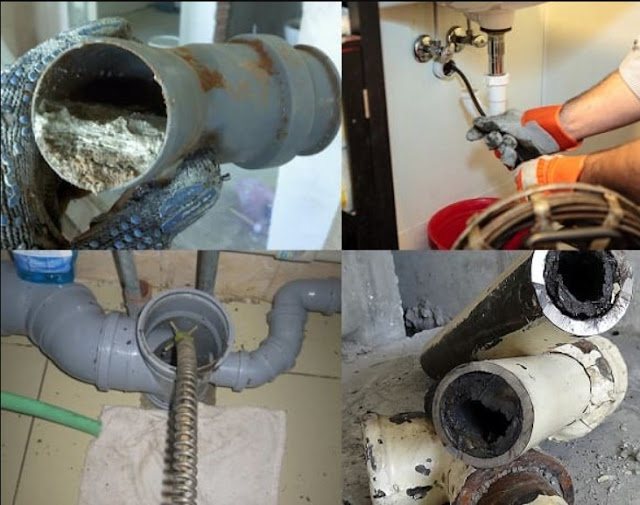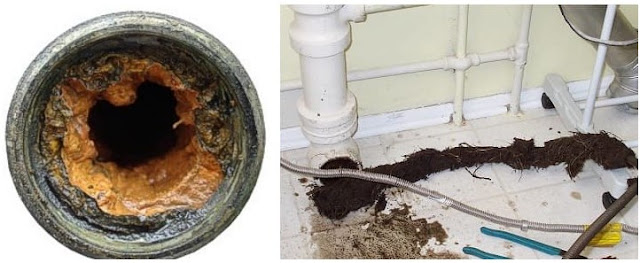clogged sewer line in basement – The condition of the sewer lines determines the overall performance of the system. A clogged sewer in an apartment building is a serious problem that affects all residents of apartments belonging to the problem riser.
It must be eliminated as soon as possible, since the system cannot be used. At least one of the apartments will be heated, and the result will be a lawsuit against the culprit of the blockage. The issue is capacious, far beyond the usual plumbing tasks, so it should be considered more carefully.
Contents
clogged sewer line in basement
What is the appearance of a blockage
A blockage in a sewer riser is most often expressed in a slowdown or complete cessation of the passage of water through the pipeline. The inhabitants of the floor will suffer the most, at the level of which the blockage has arisen – the pressure of the drains in the vertical riser will force the liquids to look for another way out, most often, they overflow the toilet bowl and pour onto the floor. People living on the upper floors cannot use the clogged sewer system, but they are not aware of the problem and continue to use the systems as usual and increasingly flood the neighbors below.
Other signs of blockage can be:
- the appearance of a sharp unpleasant odor;
- cloudy water in the toilet after flushing;
- the appearance of air jams or congestion of organic deposits, manifested in the slow passage of drains.
Other manifestations of the resulting blockage are also possible. As soon as its occurrence became obvious, the residents of the lower floors need to notify the neighbors from above about the emergency and immediately take measures to eliminate it.
What is the reason
The reasons for a clogged sewage system in an apartment building are most often due to improper operation of the system. Any multi-storey building has as many risers as there are apartments on the site. They are connected in the basement into one horizontal line that flows into the yard sewer branch. The more subscribers use one line, the greater the likelihood of congestion or traffic jams.
The sewer is clogged for two reasons:
- the appearance of fat deposits in the pipe;
- ingress of foreign objects into the sewage system.
Fat deposits enter the internal cavity along with kitchen drains and gradually accumulate in places where the thickness, diameter, change in the direction of the pipeline changes. The main danger lies not so much in the layers themselves, which rarely clog pipes, but in their sticky texture. If any object, even the smallest, gets into the pipe, it will stick and remain on the surface of the layers. Gradually, there will be more of these objects, a plug will form, which will increase in size and one day will completely block the entire section of the pipe.
In addition, pipes are often clogged for the following reasons:
- throwing food waste into the toilet;
- throwing away cat litter;
- getting into the pipes of hair or wool.
If everything is more or less clear with food waste, then there is a problem with cat litter. The fact is that manufacturers directly indicate on the packaging that the filler can be thrown into the toilet in small portions. Naive users do just that, and as a result, they have to answer to their neighbors in court. The called plumbers break through the complex blockage of the central sewer riser, discover the composition of the cork, and the one guilty of the ingress of foreign objects will be held liable.
Hair that gets into the pipes causes a lot of trouble for residents and plumbers. They constantly accumulate in the siphons of bathtubs or shower stalls, making it difficult for drains to escape. If they pass through the system further and accumulate in the area of the elbow or transition to a pipe of a different diameter, laborious cleaning will have to be performed to a great depth. Such plugs are complicated in that they cannot simply be pushed through, they must be removed from the inner cavity, otherwise there will be no useful cleaning effect.
Incorrect installation
There is another reason for blockages – improper installation of sewer pipes. There may be a lack of a slope, and incorrect connection of horizontal pipelines to the vertical central riser. The mistakes made by the builders are the explanation why the sewage system in the apartment building is constantly clogged. Due to the fault of the residents, blockages occur relatively rarely, but the frequent repetition of the same problem indicates an illiterate installation of the sewer network.
What are the consequences
The consequences of blockages in sewer pipes can be different. If the indoor lounger turned out to be a problematic element, then there will be a slowdown or a complete stop in the drainage of wastewater from sinks, bathtubs or toilets. Clearing such blockages is quite simple, you can even do it yourself.
Much more dangerous is the blockage of the sewage system in the basement of an apartment building. He actually stops the operation of the sewer riser until they fix the problem. All this time, the maximum troubles will fall on the residents of the first floor, who will demand damages in court. The procedure is complex, requiring a search for the perpetrators and other actions.
Sewer leaks in the basement contribute to the destruction of the foundation, the appearance of rot and mold, mosquitoes, and the spread of infectious diseases. If leaks are found, you should immediately call the specialists.
How to remove a blockage
So, the sewer riser is clogged, what to do? You can solve the issue yourself, or contact the management company. The appeal to the Criminal Code will most likely be paid, although different situations are possible. There are two types of self cleaning:
- mechanical ;
- chemical .
It is necessary to break through the blockage with your own hands using special tools:
- plunger ;
- plumbing cable .
The plunger is effective only for clogging in the water seal of sinks, bathtubs or toilets. If the problem lies in horizontal pipes, a wire rope should be used. Mechanical cleaning methods are no less effective than chemical ones, but you have to work with a cable blindly and at random, and chemical agents fill the entire internal volume of the pipe to the very blockage and dissolve it. Some people use various “folk” remedies – vinegar, etc. this must not be done, as harsh chemicals can destroy the cast iron pipes in the riser or in the basement line. It is necessary to use certified products, which are abundant in stores. Usually, the cleaning compound is poured into a sink or toilet bowl and kept for a certain period of time to act on the blockage.
If it was found that the problem lies in the vertical riser, it is best to contact the UK for qualified assistance.
Who Should Clean Up
Most residents are poorly versed in administrative and legal regulations. Few can confidently say whether the management company should clean the sewer system in the MCD or not. There are many reasons for such illiteracy, often the vicious practice of careless managers is to blame for trying to shift any work onto the shoulders or wallet of the residents of the house.
Cleaning the sewer riser in an apartment building is the responsibility of the employees of the management company, since the riser belongs to the common property and is completely under their jurisdiction. A paid service can be flushing or breaking through blockages in the lounger, but the vertical common pipeline must be serviced by qualified personnel. In any case, if the sewage system is clogged, you need to know where to call and what to do first:
- accidents in the sewer well are eliminated by the city water utility;
- the clogged pipes of the internal sewage system are served by the fitter of the UK;
- emergency situations are handled by emergency workers.
Usually, all the necessary telephones are on the utility bills.
Read also :
- leaking sewer pipe in basement
- how to get rid of mold on concrete block walls
- how to find the main sewer line in your house
- how to plumb a house
- how to clean water pipes in your house
- remove mold from basement walls
Prevention measures
To eliminate the likelihood of blockages in pipes, the rules for operating the sewer system must be observed:
- do not throw construction waste or paper (except toilet paper) into the toilet;
- food waste should not be poured into the system;
- avoid throwing away cat litter, especially those based on clay and sawdust.
These simple rules will help to keep the system working and eliminate possible problems in relations with neighbors and employees of the management company.
Check out other designs directly from your cellphone via WhatsApp Channel: https://whatsapp.com/channel/0029VaASACYFXUuYULZWe939.


